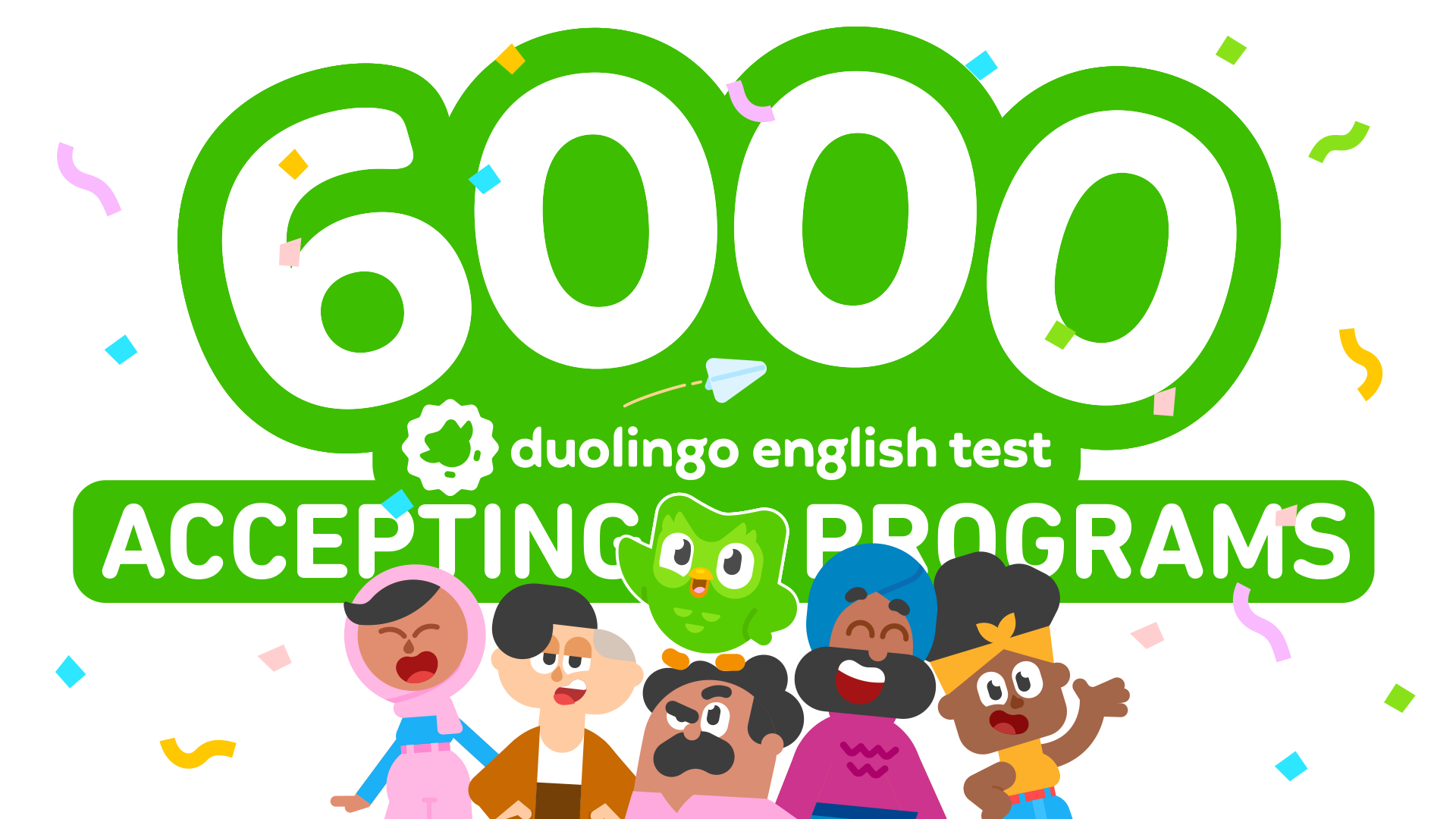This article has been updated as of August 25, 2025
Gone are the days when students were limited to a single choice for language proficiency tests. Universities are increasingly broadening their options, offering students the liberty to choose the test that best aligns with their circumstances and preferences.
Case in point: since 2020, the number of programs that recognize the DET has more than doubled to over 6,000! This steady growth in acceptance is part of a broader trend towards institutions taking a more student-centric approach to admissions, where students can take the test that’s right for them.
Do universities accept more than one English test?
Despite the easing of pandemic-related closures, the figures speak volumes: 99% of programs that began accepting DET before January 2021 continue to do so, at parity with the other English tests they may also accept. This trend isn't just a momentary response to the pandemic; it's a sustained commitment to flexibility and student choice.
The expansion of accepted tests has profound implications for students worldwide. When students can opt for the test that is most accessible and suitable for them, be it in terms of format, availability, or cost, this ensures that language proficiency testing is a bridge, not a barrier, to achieving their academic goals.
Institutions stand to gain significantly from a more inclusive approach to language proficiency testing. By accepting a broader range of tests, schools can tap into a more diverse set of applicants, fostering a more global and inclusive learning experience for all students.
Which English proficiency test should you take?
Before I joined the Duolingo English Test team, I spent nearly two decades working in admissions at Duke and Washington University, and my experience working with students from across the world informed my viewpoint that test takers benefit most when there are options for how they can meet testing requirements.
Years later, my colleagues in admissions are actively endorsing the same sentiment. Just ask Shawn Felton, Director of Strategic Enrollment Initiatives at Cornell University:
“It doesn’t matter which route an applicant goes; we just need to confirm proficiency in English. Our applicants should (and do) take whichever test they want, and usually the one that is most accessible for the individual.”
Shawn Felton, Director of Strategic Enrollment Initiatives, Cornell University
These sentiments are echoed by Kathryn Timlin, Senior Associate Director at Georgetown University:
“Our admissions process doesn’t favor one test over another — we just need to ensure that your English is strong enough for you to be academically successful at Georgetown. We trust every test that we accept equally, and we do not have favorites among them.”
Kathryn Timlin, Senior Associate Director Georgetown University
Marco Dinovelli, Associate Vice Chancellor of Enrollment Management at Rutgers University, agrees that universities view ELP tests equally for admissions:
"If a university puts an ELP test and minimum score on its website, it means they have complete confidence in that test—the same level of confidence they have in any other test they accept.”
Marco Dinovelli, Associate Vice Chancellor of Enrollment Management at Rutgers University
As to whether or not an applicant might be favored for choosing one test over another, Ryan Sullivan of Thomas University is ready to disspell this myth:
“An applicant isn’t more or less likely to be admitted based on which test is submitted. It is unequivocally false that we prefer one test over another. Take whichever test is most convenient.”
Ryan Sullivan, Associate Vice-President of Enrolment Management St. Thomas University
This shift towards embracing a variety of language proficiency tests is more than just a policy change; it's a reflection of an evolving ethos in higher education – one that values diversity, inclusivity, and student choice. As universities continue to adapt and evolve in this direction, students worldwide stand to benefit, as their educational dreams become more achievable than ever before.
Having options makes a difference!
As we witness this remarkable transformation, I am extremely grateful to the thousands of universities that have joined us in our mission to make education more accessible. Thank you for being part of this crucial movement. Your partnership is invaluable, and together, we are paving the way for a brighter, more inclusive future for learners around the globe.
To see if your dream school accepts the DET, check out our complete list of accepting institutions!
